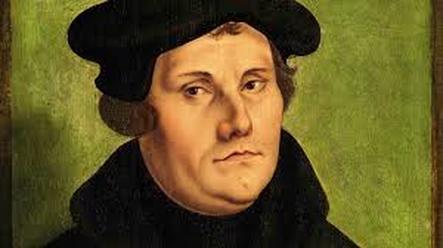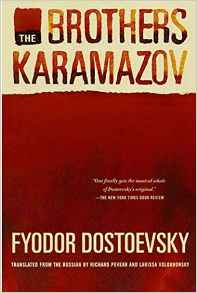 Merry Christmas from the Czech Republic! As our family prepares to celebrate our first anniversary since moving to be missionaries here, we are filled with so much gratitude. Thank you, Southern Heights, for standing with us in faith, and believing God for great things in the hearts of Czech young people. This has been a year of special celebration in the Czech Republic, as it is the 100-year anniversary of the founding of Czechoslovakia. During the biggest day of celebration I took my family to the square in our city of Ostrava to watch a special procession. There were brass bands, Czech scouts, and many people dressed in 1918-era clothing. It was spectacular! But the most magnificent moment was yet to come. At the rear of the procession drove a classic black car, surrounded by legionaries on horses. The first Czechoslovak president, Tomas Garrigue Masaryk, had arrived. Of course, it was just an actor! But the excitement in the air was palpable. I motioned over in the president’s direction for my sons to look: “There he is! He’s coming! He’s coming!” It was as if Masaryk’s return meant that all would be made right, that the divisions in this nation would cease, and he would reestablish a republic based on faith, truth, and justice. This memory stands out in my mind this Christmas. Why? Because this is what Christ’s coming means for us. When Jesus comes, he comes to make all things right. And that is very good news! The prophet Isaiah spoke of God’s coming as King to the exiles in Babylon, in a way that is strikingly appropriate for how we should see Christ’s arrival. Isaiah 52:7-10 (CSB) How beautiful on the mountains are the feet of the herald, who proclaims peace, who brings news of good things, who proclaims salvation, who says to Zion, “Your God reigns!” The voices of your watchmen-- they lift up their voices, shouting for joy together; for every eye will see when the Lord returns to Zion. Be joyful, rejoice together, you ruins of Jerusalem! For the Lord has comforted his people; he has redeemed Jerusalem. The Lord has displayed his holy arm in the sight of all the nations; all the ends of the earth will see the salvation of our God. Isaiah can see a messenger running across the plains (52:7) to bring a message back to ravaged Jerusalem: “Good news! Good news!” He shouts that the battle has been won, the exiles have been ransomed, and this means: “Peace! Goodness! Salvation!” But what is at the core of his message? What is the most important good news? “Your God reigns!” God has proven himself to be the rightful King. And he is coming home!
The watchmen on the walls hear this good news from a distance (52:8), and they can’t contain their excitement. This is incredible! They shout for joy, as they anticipate the return of their King to Jerusalem. The message quickly spreads to the rest of the city (52:9-10). Jerusalem had been ravaged by Babylon, left in ruins. But the King is coming. He will heal all. When God comes as King, he comes to make all things right. And that is very good news! God rescued his people from their captivity in Babylon, and brought them back to Jerusalem. But this was just a foretaste of the Kingdom to come. When the angel Gabriel reveals to Zechariah that he will have a son that will prepare the way for the Messiah (Luke 1:17), we are reminded of passages like the one in Isaiah 52. It comes as no surprise then, that when Zechariah prophecies about his son John, he also speaks in the language of Isaiah (Luke 1:67-79). John is like the herald, announcing that the King is near. The king is on his way home. That is what Jesus’ birth is all about. It is about God coming back as King. It is about God proving that he has not forgotten about those lost in darkness, breaking under the yoke of oppression, evil, and sin. He comes to make his salvation known to all peoples, near and far. God has come to take up his rule, to fix what was broken, and to establish his kingdom of peace, goodness, and salvation for all. When Jesus comes as King, he comes to make all things right. And that is very good news! This Christmas, let us, like the inhabitants of Jerusalem, expectantly anticipate the return of our King. This simple, quiet, humble birth means the greatest revolution the world had ever seen. God has come back. And he will make all things right. What good news! Have a blessed Christmas with your families and friends. We will be celebrating with you from afar! May this Christmas season fill you with joy because of this great news. May we also anticipate the future and final coming of our King. As Jesus said to John in Revelation: “Yes, I am coming soon.” (Revelation 22:20). Amen! Come, Lord Jesus! That really is good news! This year our church is reading through the Book of Common Prayer's Advent readings. The Book of Common Prayer is a literary tradition spanning back to the time of the Reformation. It is a compilation of hymns, readings, and prayers which have helpfully drawn God's people into prayerful reflection. Our church, while not an Anglican church (for some very important reasons) have found these readings on Advent to be particularly helpful. So as part of the Advent season, we are reflecting on the various Advent collects, or prayers, on this blog. You can visit the first Advent Prayer here. The second Advent prayer says this:
Like last week's reading, this one is made up of three parts. The three parts reflect on the coming of God to his people. They present us with the prophets who made clear the way of the Lord, they present us with the last Word of God, who has revealed to us the wonderful mystery of the Trinity. Merciful God, who sent your messengers the prophets to preach repentance and prepare the way for our salvation This first prayer fixes our minds on the God of the prophets. Those angsty, gnarly, cranky, and, at times, hangry, men. They were haggard and bent over. They came wearing only shreds of clothing. They told us of the coming judgment. They scowled. They grunted. They waved their arms in the air. At times they went to radical extremes to tell us the Day of the Lord was on its way. Sometimes, it was encouraging. Most of the time we ignored it. Masters of the literary form, they wrote long treatises and preached long sermons. They ranted. They built exacting argument upon exacting argument. They delivered their message with forcefulness. We put our thumbs in our ears. We didn't want to hear. They took our thumbs out and shouted. "You have to hear!" they said, "God is coming!" The most remarkable thing about this prayer is the simple ascription to a God who sends envoys such as these. He is called, "merciful." It is merciful for God to send to us those who will prepare a way for salvation. It is merciful that they came to us, in the world but not of it. We are able to see past all the distractions of the world, the world with all its trinkets and its toys, its wit and wisdom, its novelties and knowledge. In these simpletons a complex God makes himself known. God's mercy to us comes because he did not send them as foreign dignitaries in all the trappings of respect and reputation. He sent them to us, as harbingers of another world, wearing camels' hair for belts and eating locusts dipped in honey. Hebrews says this of those hallowed heroes, "What more shall I say? For time would fail me to tell of Gideon, Barak, Samson, Jephthah, of David and Samuel, and the prophets-who through faith conquered kingdoms, enforced justice, obtained promises, stopped the mouths of lions, quenched the power of fire, escaped the edge of the sword, were made strong out of weakness, became mighty in war, put foreign armies to flight. Women received back their dead by resurrection. Some were tortured, refusing to accept release, so that they might rise again to a better life. Others suffered mocking and flogging, and even chains and imprisonment. They were stoned, they were sawn in two, they were killed with the sword. They went about in skins of sheep and goats, destitute, afflicted, mistreated, of whom the world was not worthy-wandering about in deserts and mountains, and in dens and caves of earth." (11:32-38) Truly, they are not of this world. This strange fact is, in fact, their credibility. It is merciful of God to send us messengers as such as these, and it is they who make clear the path of the Lord. Give us grace to heed their warnings and forsake our sins, that we may greet with joy the coming of Jesus Christ our Redeemer The second section of this prayer is a request to the Lord. It asks for grace, the precious grace, that the scales on our eyes might be washed away, that the plugs in our ears might be removed, that the cast over our hearts might be cut away. It asks for the eyes to see and ears to hear the words of the Lord. Such strange messengers speak a strange language that is unnatural and revolting to the unredeemed ear. Only by the grace of God can we hear God's words. It is for the grace of repentance, that sweet gift, sweeter than any honey, that we speak. Give us grace to turn from our sins. Give us grace to see our sins for what they are, to behold them in all their ghastliness, and their ugliness. Help us to "uncultivate" our tastes to the pleasures of our world. Of course, that is only the first half of repentance. For just as we have cultivated a taste for sin which must be uncultivated, so we must acquire a taste for the things of God. To ask for the grace of repentance is not only to ask that God would help us turn away from our sins, but also to ask that God would help us to turn to God. It is to ask God for the gift of conciliation, not just contrition. Without such gifts, we will never hear the Word. Hebrews tells us, "Long ago at many times and in many ways, God spoke to our fathers by the prophets, but in these last days he has spoken to us by his Son, whom he appointed the heir of all things, through whom also he created the world." (Heb 1:1-2) In Christ, God got his last Word in. Christ is the last thing we need to know about God. Every prophet before him spoke of the one who was to come. Every prophet after him spoke of the one who already has come. Alpha and Omega, beginning and end. The first and final, clearest and most mysterious, Word of God. Such a Word cannot be heard by fleshly ears or stoney hearts. We cannot hear about Christ so long as we are enraptured with sin. Christmastime, this prayer teaches us, is a time to reckon with this Word about God. This, the last Word of God, spoken of for long before, has finally come. Have we prepared Him room? Have we attended our hearts to Him? Have we hushed our whispering in his presence? Christmastime is a time for repentance. And this is only grasped by grace. who lives and reigns with you and the Holy Spirit, now and for ever. Amen. Just as last week, we are caught up into the heavenly throne room. Christmas repentance transposes us before the Almighty Lamb of God, standing as though he had been slain, amidst the sea of glass and storm, and in the presence of the Great Throne. Christmas Repentance brings us into the midst of this, the most transcendent of mysteries, the most lucid of dreams, the most seen unseen. It is nothing less than the presence of the Trinity. Here, adopted through the Son, filled by the Spirit, and loved by the Father, the elect of God gather with one voice to praise Him from before all time and now and forever. Christmas time realigns us, attunes us, shapes us, molds us, exposes us, fills us, strips us, clothes us, takes away and gives back, questions and answers. Christmastime is the coming of the Son of God, the very God of very God and very light of very light. This is not a sight for the amateur sightseer. One must cultivate and acquire this taste. We must train our eyes to see this vision.
This is what Advent prayers are for. For this year in Advent, our church is reading through the contemporary Advent Collects in the Book of Common Prayer. The Book of Common Prayer is a literary tradition spanning back to the time of the Reformation. It was a powerful tool that the Anglican Church used to shape its people around Christ. Not quite a hymnal, but similar, the Book of Common Prayer was valuable as many saints from all around the world forsook the world, the flesh, and the devil and sought to make their lives look more like Jesus using this book. We are not an Anglican Church, and we are not Anglican for some very important reasons. However, we do believe that, as far as this particular tool adheres to the Holy Scriptures, it is valuable for us to grow into Christ's image. So for the month of December, I am going to be blogging on the various readings from the Sunday Readings, called a "Collect." Each of these Collects is a prayer around a particular theme of Christmastime. The first one is a prayer that is shockingly eschatological (meaning it is about the end times). It is draped in the imagery of war and of the end times. Of that troubling and turbulent time to come, and of the peace which is on heaven and earth, good will to men. The peace of God only comes through the invasion of Christ. Needless to say, this is not your grandmother's Christmas! It reads as follows:
This first, this first prayer, has three important sections to it. First, it has the present. Second, it places the present in light of the eternal. Third, it pleads on the basis of the Triune God. Let's deal with each one in turn. Almighty God, give us grace to cast away the works of darkness, and put on the armor of light, now in the time of this mortal life in which your Son Jesus Christ came to visit us in great humility The first prayer of the Collect is a request for God to give us the grace of repentance. This is given a vivid flare by the contrast of darkness and light. We are invited through the Collect to ask God for grace to the task to be done. Christmastime, we learn, is not a time for pithy sentimentalisms. It is a time for war, a time when we embroider ourselves with the blood of the lamb. We desperately need the grace to fight this battle well. We need the armor of light, for the task at hand. This war requires work. This war is the most recent flare up of an eternal battle. And the campaign was started when God the Son paradropped into the sleepy town of Bethlehem. But the Son did not come as a mighty warrior, clothed in strength and armed with power. No, he came as a low-class carpenter, swaddled in the flesh of a babe. So great is this conquering Lord, that he will gather to himself those who come to him as his Son came to earth: the hesitant and humble, the bashful and bedraggled, the forgotten and forsaken, the unloved and untouched. He will carve his image into this forgotten stone of human misery. The chief weapon of Christmas war, we see, is the humiliation of God in the flesh of man. that in the last day, when he shall come again in his glorious majesty, to judge both the living and the dead, we may rise to life immortal Of course, this one who conquers through being killed, who defeats through death, who overthrows every power and name by being born in a backwater corner of a backwater province of the Roman Empire, will not come a second time so. Rather, the one who was born, lived, died, rose again, and ascended, will return on high. And when he does, he will gather himself the army of outcasts, and they, this messy mob gathered from the corner of every slum there ever was, will become as he is. At Christmastime, we look forward to the glory to be revealed in us. The glory of the angels on high, sweetly singing o'er the plain, will one day be ours! No longer will we have sunken cheeks, canyons formed by the everflowing saline springs in our eyes, the bony arms, and look of those who are in a world not their own. Rather, we will have glorious majesty, life immortal, raised with the resurrected and ascended Lord. Christmastime is when we look at that manger, the place where the sheeps and the goats feed alike, and we see the Lamb standing as though he had been slain. through him who lives and reigns with you and the Holy Spirit, one God, now and for ever. Amen. The final stanza of this first prayer carries us into the eternal plan of the infinite, triune God. The humble will be come the high, the meek the majestic, the gentle the glorious. We who carry in our flesh the cross of Christ will burst forth in glorious day. But this only happens through the one who was humble to the point of death, who was meek to the point of flagellation, who was gentle as a lamb led to the slaughter. And this, this is what we celebrate at Christmas. The advent of the Son of God, conceived by the Holy Spirit, commissioned by His Father, sent from the foundation of the world, and who will one day rule over the world. The Triune God is the God of Christmas Time, he is in it and through it and with it and for it and against it all at once. The Lion of the Tribe of Judah comes to us as the Lamb of Bethlehem, that sleepy shepherd town.
And nothing would ever be the same.  In America, we celebrate the holiday of thanksgiving once a year. We eat turkey, we watch football, we take time off. We dub this regimented indulgence, "Thanksgiving." We trace the tradition of yearly Thanksgivings specifically to our first fathers and mothers who came across on the Mayflower, but also through the presidency of Abraham Lincoln who instantiated the holiday of Thanksgiving. Well and good. Of course, how the practices of Thanksgiving actually relate to the command of God to be disciplined in giving thanks (Psalm 147:7) is something of a conundrum. We engage in the practice, but think little about the tacit formation. What does it mean to practice thanksgiving? Are our yearly practices of Thanksgiving actually congruent with the Scriptures' command on us to give thanks? To practice thanksgiving requires at least two steps. 1 - It is to acknowledge that everything that we have is from one another. This requires a pain-staking humility. To truly give thanks, we must come to an end of ourselves. We must look to something we have which we could not have attained for ourselves. Thanksgiving is the discipline where the gifted gratefully reflects on the gift the giver gave him which he could not have given himself. In other words, it requires us to say, "This came from someone else. It is gratuitous." The theoretical reason food is associated with with gift giving is an acknowledgement that that sustenance comes from another. We indulge in a whole array of foods and fill ourselves, and after we wake up from our food coma, we recognize that we could not have achieved that on our own. This is why we pray with thanksgiving at the beginning of every meal. It is to recognize that this comes from somewhere else, not ourselves. We recognize all that God has given us, all that God has showered on us and lavished on us. We recognize it is totally undeserved. It is not something we did to deserve it. This is the step that most people feel comfortable with. 2 - It is to reflect on what this implies about the character of the giver. If the giver gave the gifted such a gift, what does that imply about the giver? This is the step we don't care for. We don't take this step of thanksgiving first, because it requires work, and second, because the results can be somewhat disconcerting. For example, if I have much on my table, it is easy to give thanks. How generous this implies my God is! How wonderfully this compels me to think of him! But when all that is in my cornucopia are crumbs of stale bread or scraps of singed meat, what does this imply about God? That he has a purpose in my pain? I don't want to think about that. It is easy to give thanksgiving on Thanksgiving, or even on Christmas. We can be thankful even then. But in January, when the sky is glum, the ground is wet, and the table is empty? Can we be thankful even then. Can we believe that God would use even those seasons in our lives, where we are lean and hungry, trembling and tired? The discipline of Thanksgiving teaches us to be so. This might be a difficult practice to wrap our minds around. Yet it is essential. Because, Thanksgiving teaches us how to come to our Savior. When we come to him, all our Thanksgiving emotions point every direction (Rev 7:12). Because when we see him crucified, shamed, emaciated, skinny, ugly, ghoulish, bloody, broken, bruised hanging on the cross, what does this imply about God? Can we give thanks, even for this? Yes, we can admit, we could not provide a sacrifice on our own, the gift for the gifted is not of himself. But can we admit that this is the God who does indeed provide? A sacrifice for our sake. A broken body for ours. A man estranged in our place? Indeed it is He. But we also see a lamb, standing as though it were slain. Not only has he been killed, he has also been enlivened. Not only has he been crucified, he has been resurrected. Not only was he lowered into the ground, he is risen. When we give thanks for this, the greatest of gifts, we recognize that this too, this is our God. The God who provides. The God whose gift is not only death, but also life. Not only darkness, but also light. This thanksgiving, whether with plenty or little, with full or empty plates, give thanks to this God. The God who gave one to die for you, and gave one to life for you. The God who gave the lamb who is standing though he has been slain. Come to an end of yourself, and there you will begin to come to Him. "Nothing in my hand I bring, simply to the cross I cling."  This Fall, I have been developing a love for the persecuted church, especially after reading through Nik Ripken's The Insanity of God (which I would highly commend). We don't particularly like to talk about the persecuted church because our culture is a culture where comfort is king. But the persecuted church is the north star for Christian thought; it is ever before us, anchoring our heavenly citizenship to this earthly place. It reminds us that we are not home yet, and there is much work to be done. To know about, to think of, and to pray for the persecuted church is a necessary Christian discipline. When sit under the persecuted church, we are tapping into the Great Tradition, that torrential river of the thundering faith of the Church from all times and all places. The Persecuted Church teaches us, and disciples us in the way of Christ. Here are some of the things I've learned from the Persecuted Church.
 One of the most life-changing classes I took at Bible college was the study of the European Reformation. In that class, one character loomed tall above all in his passion for Christ, his heart for the Church, and His zeal for the Word: Martin Luther. Luther was a budding law student, who out of fearfulness donned the cloak of monkhood. And he threw himself wholeheartedly into the cloth, giving everything he had to self-effacing acts of piety. As he once quipped, "If anyone could be saved by monkery, it would be I." But the more he tried to be holy, the more he realized he was sinful. For him, to see the righteousness of God only created a resentment. How could one love God if God was standing over them continually with the judge's gavel, knowing full well that the sinfulness of man was on full display before the all seeing eye of God. God was not the tender shepherd who walked us through the valley of the shadow of death, God was the darkness of the storm thundering and shaking, striking and lighting up Mount Sinai. For Luther, to stand in God's presence was a terrifying prospect indeed, because he had no righteousness to cling to. He would surely be swept away at the awesomeness of that mighty moment. But Luther realized something about the righteousness of God. It was not only the standard by which he judged all human actions. It is also the means by which God makes his people righteous. God's justice is how he justifies his own. The righteousness God has, he gives to his people, this is what he says, as reported by the eminent Roland Bainton, "Night and day I pondered until I saw the connection between the justice of God and the statement that "the just shall live by his faith." Then I grasped that the justice of God is that righteousness by which through grace and sheer mercy God justifies us through faith. Thereupon I felt myself to be reborn and to have gone through open doors into paradise. The whole of Scripture took on a new meaning, and whereas before the "justice of God" had filled me with hate, now it became to me inexpressibly sweet in greater love... If you have a true faith that Christ is your Saviour, then at once you have a gracious God, for faith leads you in and opens up God's heart and will, that you should see pure grace and overflowing love." (Here I Stand, A Life of Martin Luther, 49-50) God is a holy, righteous God. Before him, we are all shown to be what we are: fickle, feckless children. But by the blood of Christ, God's wrath is removed. Our debt is paid. Our estrangement is taken away. Our slavery is redeemed. In the cross of Christ, the righteousness of God is made known. He became sin, so that we might become the righteousness of God. (2 Cor 5:21) Dear friend, hear the raw and radical, astonishing and audacious, overwhelming and breathtaking message that Luther preached. The righteousness of God was made known on the cross and can be grasped in faith. Only by emptying our hands of our little trinkets, only by scraping our resumes of all our accomplishments, only by humbly acknowledging what God already knows too well: that we cannot be good enough for God, can we come into the presence of God. We take off our own accomplishments, and we put on Christ's. We give up our own achievements, and we take up Christ's. We stop trying to pay the debt, and we cash the check that Christ wrote. Christ exchanged places with us, he took our shame, he gave us his honor. He took our sin, he gave us his salvation. He took our guilt, he gave us his grace. This is the gospel, the good news. This is the salvation that Christ gives us. This is the significance of Luther then, he dared to preach a gospel of audacious grace, a gospel of strange salvation. A gospel that tells us the whole world is guilty before God, and yet the grace of God can be had by all who believe.  One of the books that I am currently reading through is my friend John Dickerson's, I Am Strong. I love what he says about prayer: The disciples knew where Jesus got His power. It was through prayer. That's why they made this request of Him: "Lord teach us to pray" (Luke 11:1). They weren't being religious when they asked for the prayer lesson; they were being hungry. They wanted the same power Jesus had. If you think of the lengthy prayers that preachers, politicians, and leaders bellow out with their eyes half closed, it's comical to note the brevity of Jesus' model prayer. No fluff or pomp. No chest beating. The entire pinky of a prayer folds into two easy halves: 1. Jesus aligns Himself with the father. 2. And then Jesus asks. That's it, He aligns. And He asks. Quite specifically, quite gutturally, with vulnerable unveiling, He asks. (Dickerson, I am Strong, 60) I have always loved John's writing style, but this really caught my attention. It is a helpful approach to prayer: Align ourselves with God's will, Ask. I think this fits neatly into the language of Union and Communion with Christ. Our Union with Christ is the objective, once for all, inclusion into the death and resurrection of Christ and participation in the benefits He acquired through them. Through our Union with Christ, we are dead and buried because Christ is dead and buried (Rom 6:1-4). We are justified because Christ is justified (Rom 5:25). Because Christ is holy we are holy (1 Cor 1:30). To be in Christ is to give him all of our sin, all of our shame, all of our guilt and to receive all of his righteousness, all of his honor, and all of his right standing before the Father. In Christ we are no longer at war with God, but at peace with Him. In Christ we are no longer condemned, but we are justified. In Christ, we are no longer slaves of sin, but we are redeemed. In Christ, we are no longer estranged, but we are reconciled. Because Christ is a son of God, we who are untied to him are adopted into the family of God, so that His Father becomes ours. It is this union with Christ that we align ourselves so deeply with when we pray. We, "step into" our union with Christ to experience all that he has for us from the Father. We are not coming to the throne of the Father as childless orphans or servants plucked from some dungy corner of the house, we are a royal people availing ourselves of our royal privilege. We are the sons and daughters of the King. But we are also not pedestrians or citizens of another fiefdom. We have responsibilities and we exist for the interests of the King. We pray ultimately in the name of Christ and for the will of the Father. Being the sons of the King, we carry his standard rather than our own. We have both rights and responsibilities as the children of God. To align ourselves in prayer is to put on this royal identity, it is to "put on Christ." (Col 3:10) But prayer is more than just "aligning." It is also asking. To ask means to give voice to that murmur that restlessly travels to and fro on the watery surface of our hearts. It is to allow that voice that rustles the leaves of our hearts out. It is to bring to God every worry, every concern, every anxiety the we have, and to trust that He will hear, and He will answer in His own way and in His own time. And that answer will be a good answer, because He is good. This is the most sonly or daughterly thing you might do today: to reach out to God in prayer and to be honest with Him. This might be the most heavenly thing you do today: pray to your heavenly Father. I love what Helmut Thielicke says about this: "A child who prays to the loving God for a hobbyhorse or for good picnic weather makes fools out of these wise men. With his little hands he points to the greatest good, the heart of the heavenly Father. " - (Helmut Thielicke, I Believe, 41) This is what it means to align and to ask. To have union, and to commune. To be adopted by God, and to petition to God. This is the Christian approach to prayer. This past Sunday, Pastor Matt preached on Scripture's teaching on demons and Satan from Acts 16. Listen to that sermon here. Here are some of the other passages that speak of demons and Satan which Matt referenced:
Ephesians 6:12 - For we do not wrestle against flesh and blood, but against the rulers, against the authorities, against the cosmic powers over this present darkness, against the spiritual forces of evil in the heavenly places. 1 Peter 5:8 - Be sober-minded; be watchful. Your adversary the devil prowls around like a roaring lion, seeking someone to devour. Genesis 3:1 - Now the serpent was more crafty than any other beast of the field that the Lord God had made. He said to the woman, “Did God actually say, ‘You shall not eat of any tree in the garden’?” Revelation 12:17 - Then the dragon became furious with the woman and went off to make war on the rest of her offspring, on those who keep the commandments of God and hold to the testimony of Jesus. And he stood on the sand of the sea. 1 Timothy 4:1–3 - 1 Now the Spirit expressly says that in later times some will depart from the faith by devoting themselves to deceitful spirits and teachings of demons, 2 through the insincerity of liars whose consciences are seared, 3 who forbid marriage and require abstinence from foods that God created to be received with thanksgiving by those who believe and know the truth. Galatians 1:8 - But even if we or an angel from heaven should preach to you a gospel contrary to the one we preached to you, let him be accursed. Galatians 4:8–9 - 8 Formerly, when you did not know God, you were enslaved to those that by nature are not gods. 9 But now that you have come to know God, or rather to be known by God, how can you turn back again to the weak and worthless elementary principles of the world, whose slaves you want to be once more? Zechariah 3:1 - Then he showed me Joshua the high priest standing before the angel of the Lord, and Satan standing at his right hand to accuse him. 2 Corinthians 11:14 - And no wonder, for even Satan disguises himself as an angel of light. Genesis 3:15 - I will put enmity between you and the woman, and between your offspring and her offspring; he shall bruise your head, and you shall bruise his heel.” Colossians 2:13–15 - 13 And you, who were dead in your trespasses and the uncircumcision of your flesh, God made alive together with him, having forgiven us all our trespasses, 14 by canceling the record of debt that stood against us with its legal demands. This he set aside, nailing it to the cross. 15 He disarmed the rulers and authorities and put them to open shame, by triumphing over them in him. Mark 9:29 - And he said to them, “This kind cannot be driven out by anything but prayer.” 1 John 4:1-3 - 1 Beloved, do not believe every spirit, but test the spirits to see whether they are from God, for many false prophets have gone out into the world. 2 By this you know the Spirit of God: every spirit that confesses that Jesus Christ has come in the flesh is from God, 3 and every spirit that does not confess Jesus is not from God. This is the spirit of the antichrist, which you heard was coming and now is in the world already. 2 Ephesians 6:10–18 - 10 Finally, be strong in the Lord and in the strength of his might. 11 Put on the whole armor of God, that you may be able to stand against the schemes of the devil. 12 For we do not wrestle against flesh and blood, but against the rulers, against the authorities, against the cosmic powers over this present darkness, against the spiritual forces of evil in the heavenly places. 13 Therefore take up the whole armor of God, that you may be able to withstand in the evil day, and having done all, to stand firm. 14 Stand therefore, having fastened on the belt of truth, and having put on the breastplate of righteousness, 15 and, as shoes for your feet, having put on the readiness given by the gospel of peace. 16 In all circumstances take up the shield of faith, with which you can extinguish all the flaming darts of the evil one; 17 and take the helmet of salvation, and the sword of the Spirit, which is the word of God, 18 praying at all times in the Spirit, with all prayer and supplication. To that end, keep alert with all perseverance, making supplication for all the saints, We believe in discipleship! We believe every Christian ought to seek to grow in Christ! But why do churches like this do that? Why do we believe this?
Here are 26 biblical reasons why we value discipleship:
 - Pastor Matt LaMaster - I used to work for a church that printed an article for reflection in their bulletin each week. They had for years and decades, and it was a matter of interest to me. One week in my office, a box appeared of expired paper, yellowed with time. As I rifled through them, I curiously searched for the bulletin issued on my birthday, knowing I was born on Sunday. I found this curious quote: “Sunday school is for everyone.” This is more profound than we probably knew at first. Why should I become a church member? Why should I go to small groups? Why should I spend time reading the Bible? These are legitimate questions. Many of us have been Christians for years. We have walked with Christ through the good and the bad. Lesson upon lesson he has taught us. We’ve read through the entire Bible! Not only that, but look at our bookshelves for a plethora of Christian literature! Sure, those are good things for other people to attend, people who aren’t there yet. But, I know pretty much everything, already, right? I attend the service on Sundays, isn't that enough? I am confronted by the words of Paul in Ephesians 4:14-16, “We must no longer be children... we must grow up in every way into him who is the head, into Christ...” Paul uses “we” here. He acknowledges that he himself needs to “grow up” and that he can no longer be childish. Paul knows that the single body of Christ will never be mature until all its individual members are mature. But he also knows that, as John says, “If we say that we have no sin, we deceive ourselves, and the truth is not in us.” (1 John 1:8). And he knows, that even though he wrote a significant portion of the New Testament, even though he himself had visions of Christ on high, even though he stood toe-to-toe with Peter for walking out of step with the gospel, he too needs to grow. And if this man whom we revere so much, who has been the fountainhead for Christian thought from Augustine to Billy Graham, from Jonathan Edwards to John Piper, needs to grow, so do I. Pretending you don’t need to grow is neither truthful nor successful. It will only hurt you in the end. Acknowledging the need for Christian growth is not self-loathing, rather it is humble truth-telling. So may we all, each and every one, no longer be children and grow up into Christ who is the head over all. This post is adapted from a reflection for Addison Street Community Church. |
Southern Heights Christian ChurchCome here for thoughts on how to follow Jesus in our every day life! Archives
January 2022
Categories
All
|
Telephone |
Address5401 Madison Ave
Anderson, IN 46013 |
ServicesSunday School :: 9 AM
Sunday Service :: 10:30 AM |



 RSS Feed
RSS Feed